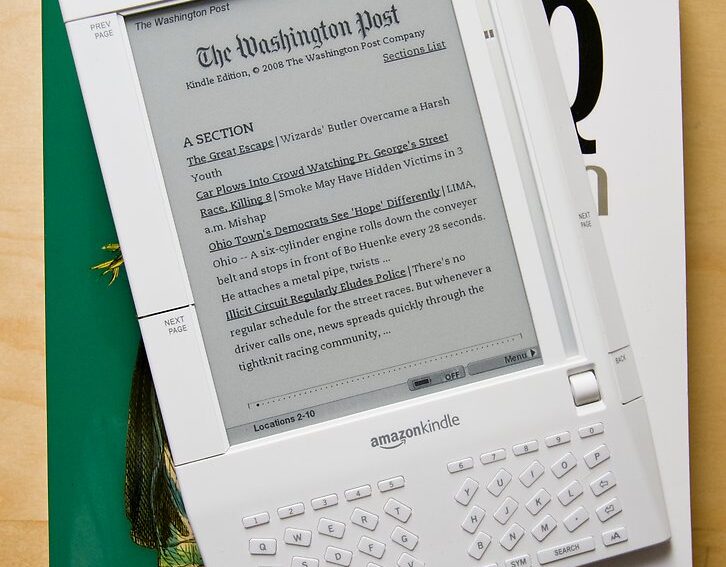ABSTRACT
In some industries more than others, innovation is introduced rather timidly, usually with a “follow the leader and undercut prices” approach.
Some firms, however, such as Amazon, are firmly committed to innovation. Kindle, for example, is not just an e-book reader but an example of innovation in the retail book market using a system-based solution. Hardware and software have combined with physical…
On November 19th 2007, the well-known company Amazon presented Kindle, a 19 x 13.5 cm device weighing in at 300 g, described by Wikipedia as an e-book based on an e-paper screen.
Despite the economic crisis, demand was so great that it sold out very quickly.
.
It’s not a system-based solution
It’s not merely an e-book reader but rather an iTunes for written supports.
Like the Apple or the iPhone platform, it’s a real system, i.e. a combination of hardware and software with things physical and remote, but co-ordinated to make reading easy for users.
These are the system’s ingredients:
*The device which, by itself, would not get very far. It is just the most visible part of the system.
*The digital documents (countless books, newspapers, magazines, blogs and even one’s own files).
*The Amazon website for information and purchases.
*Contents are not accessed by wireless connection but by 3G telephony.
.
6 reasons why it makes reading easier
You can carry several books, magazines, newspapers or blogs around with you – they add no weight to the machine – and read what you want, when you want. The screen uses existing e-ink technology and is non-reflective even in bright daylight.
Thanks to its low weight, pleasant reading and easy-to-turn pages the technology becomes invisible after just a few minutes.
It even has a keyboard, so you can make notes. It doesn’t need a computer to search for or download contents and Amazon pays for the phone connection. And if you buy more books than your device can hold, Amazon stores them for when you want to read them again.
KINDLE: AN INNOVATION REVOLUTIONISING
THE RULES OF THE BOOK MARKETPLACE.
The Kindle system revolutionises the market
Amazon is a retail company so Kindle is a distribution brand positioned not according to the traditional “follow the leader and undercut prices” option (the Sony Digital Book Reader was launched before, using e-ink too, and is about 100 $ cheaper than Kindle) but by innovating. Nevertheless Kindle innovation is not based on a radical new technology, but on a system-based solution.
It’s innovative because it revolutionises the rules of the book market. For example:
It changes purchasing habits. To receive the newspaper in your home, simply switching your Kindle on. If this happened in Spain, newspaper kiosks would have a hard time and people might even drink less coffee in the cafeterias, where they usually read newspapers.
It captures new customers: a friend sings the praises of a book; at this moment you switch your Kindle on, locate the book and in less than a minute you’ve got it. It will affect traditional bookshops too, the way iTunes has affected record stores.
Books will always be up to date, i.e. updated thanks to the software does. Publishing will no longer involve printer’s, paper supplies and a risk of low sales, so countless editions at a lower cost become possible.
Roles have been shattered, blurring the boundary between author and publisher. Micro-functions and micro-activities can change hands and some tasks, including the most industrial ones, may even disappear.
Finally, for all the above reasons, changes are to be expected in the cost structure…. and in prices.
In Amazon e-books are about 65% cheaper than their paper editions, magazine subscriptions 77% lower, and newspapers, 37% less.
.
Kindle has three problems
It only works in grey tones, not colour, and it is not designed by Apple: its interface is no as appealing as the iPhone one, for example, so young people may not be preferred target for Kindle. And even more important, since Amazon pays Sprint’s EVDO telephony bills, it’s only on sale in the USA.
So Kindle is not perfect. It can only revolutionise the USA. Spain has nothing to worry about…
.
Lluis Martinez-Ribes
Source: Distribución Actualidad, the spanish magazine of retail
(nº 389, May 2008)




